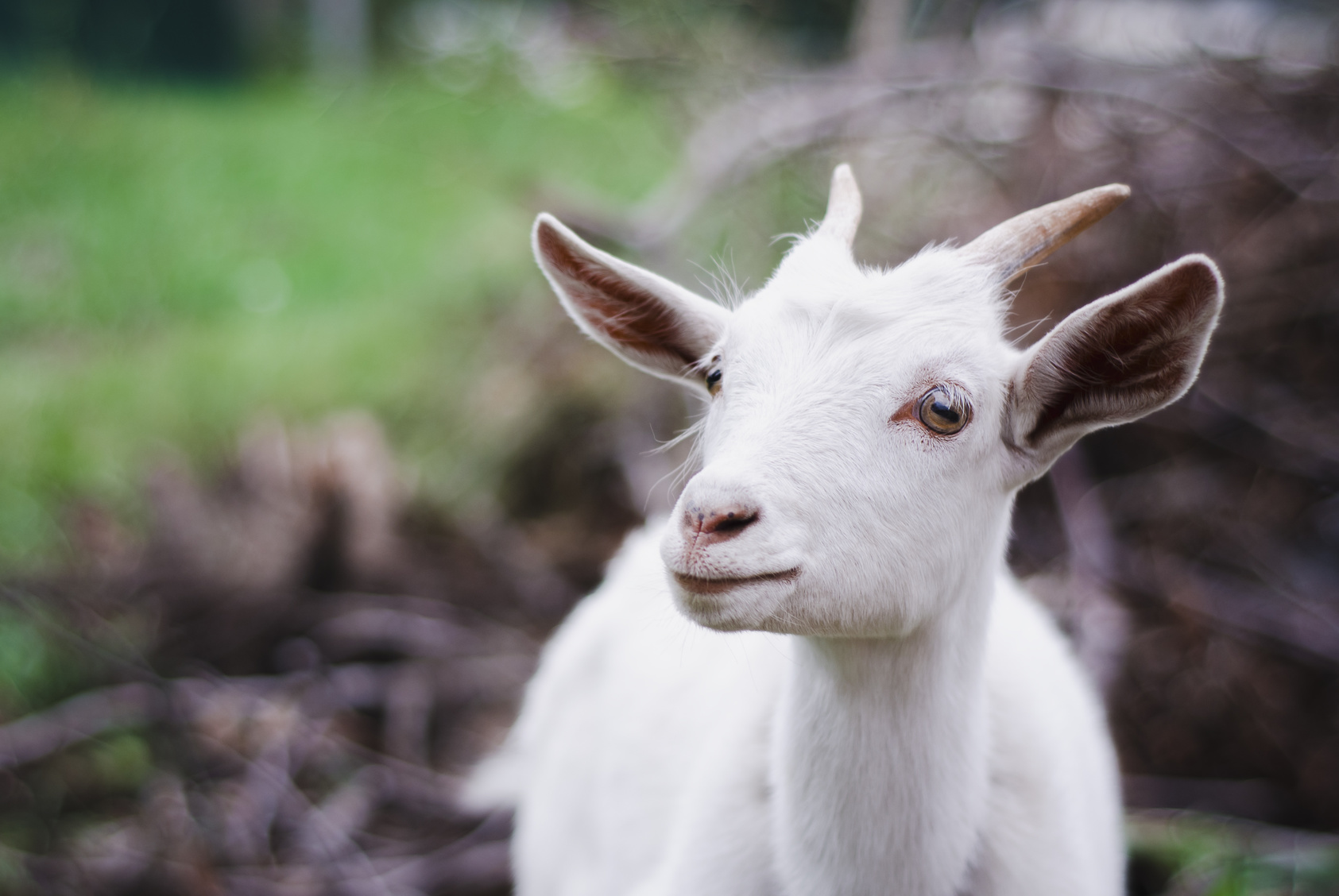Ruminants have four different stomach compartments that act as a giant fermentation vat to utilize plant material for energy. After weaning, goats need a diet composed of good quality hay. They are browsers and will graze and nibble on anything and everything. Goats can be offered some grain although precautions must be taken because high grain and low roughage diets can lead to urinary stones and obstruction, especially in castrated male goats.
Most goats need annual veterinary exams which typically include vaccinations such as Clostridium C, D and Tetanus. Intestinal parasites also play an important role in goat health and we can see severe anemia occur with heavy parasite burden. Regular fecal egg counts as well as deworming several times a year is crucial to goat health. Finally, goats hooves grow continuously and depending on their diet and wear, routine hoof trimming is required.
Goats are undeniably adorable and can make wonderful pets as long as they receive proper veterinary care and thorough research is done to adequately feed and care for them.
Author: Dr. Erika Sweigard

